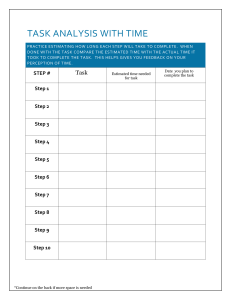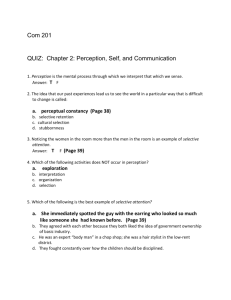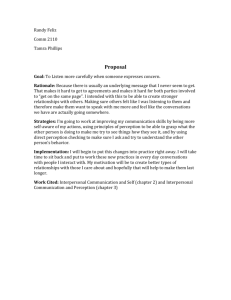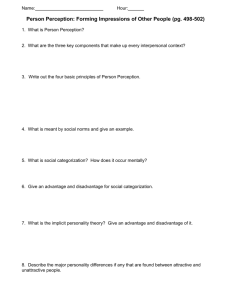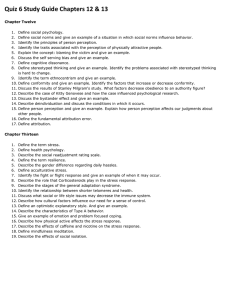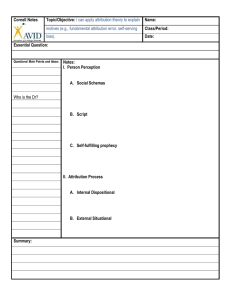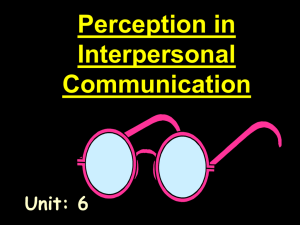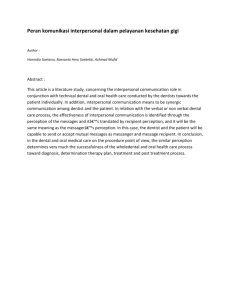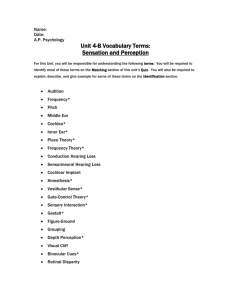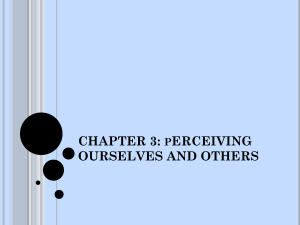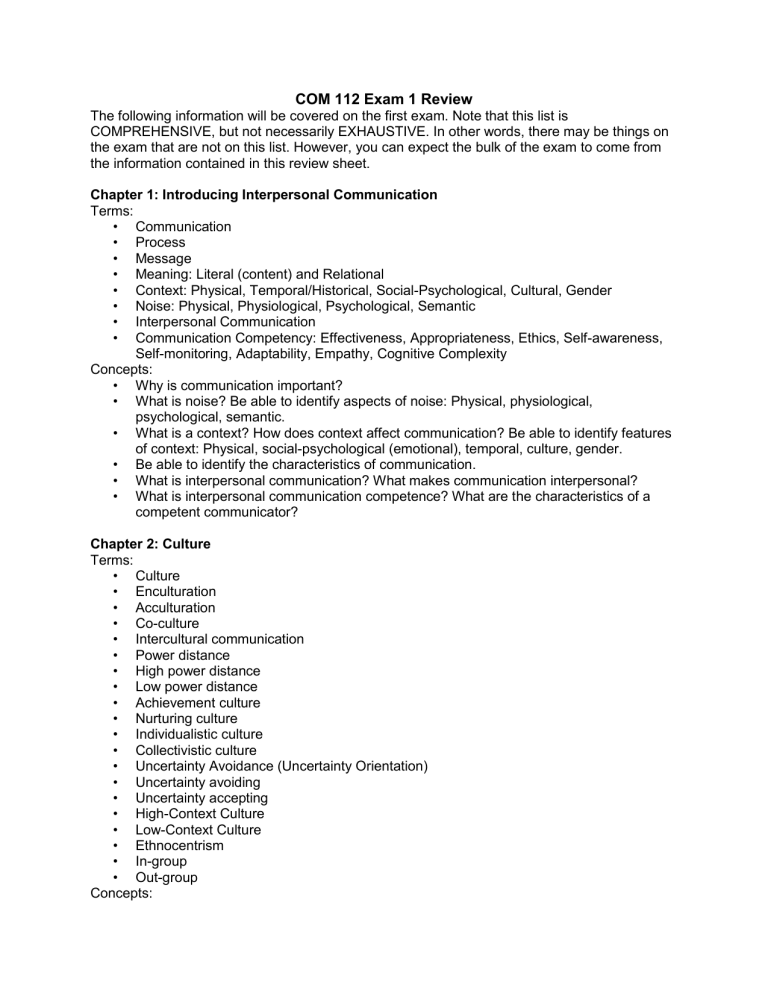
COM 112 Exam 1 Review The following information will be covered on the first exam. Note that this list is COMPREHENSIVE, but not necessarily EXHAUSTIVE. In other words, there may be things on the exam that are not on this list. However, you can expect the bulk of the exam to come from the information contained in this review sheet. Chapter 1: Introducing Interpersonal Communication Terms: • Communication • Process • Message • Meaning: Literal (content) and Relational • Context: Physical, Temporal/Historical, Social-Psychological, Cultural, Gender • Noise: Physical, Physiological, Psychological, Semantic • Interpersonal Communication • Communication Competency: Effectiveness, Appropriateness, Ethics, Self-awareness, Self-monitoring, Adaptability, Empathy, Cognitive Complexity Concepts: • Why is communication important? • What is noise? Be able to identify aspects of noise: Physical, physiological, psychological, semantic. • What is a context? How does context affect communication? Be able to identify features of context: Physical, social-psychological (emotional), temporal, culture, gender. • Be able to identify the characteristics of communication. • What is interpersonal communication? What makes communication interpersonal? • What is interpersonal communication competence? What are the characteristics of a competent communicator? Chapter 2: Culture Terms: • Culture • Enculturation • Acculturation • Co-culture • Intercultural communication • Power distance • High power distance • Low power distance • Achievement culture • Nurturing culture • Individualistic culture • Collectivistic culture • Uncertainty Avoidance (Uncertainty Orientation) • Uncertainty avoiding • Uncertainty accepting • High-Context Culture • Low-Context Culture • Ethnocentrism • In-group • Out-group Concepts: • • • What is culture? What is culture a significant variable to study with regard to communication? Be able to identify the dimensions of culture. How can we become more competent in our intercultural communication? Chapter 3: Perception & Self Terms: • Self-concept • Cognitive conservatism • Reference groups • Social comparison • Co-cultures • Looking-Glass Self • Significant other • Self-fulfilling prophecy • Self-esteem • Self-disclosure • Identity Management Concepts: • What does it mean to say that the self-concept is multifaceted, subjective, and resistant to change? • How does communication both create and perpetuate self-concept? • Be able to correctly define the self-fulfilling prophecy and give concrete examples. Chapter 4: Perception • Perception • Attending and Selecting • Salience • Organizing • Primacy effect • Interpreting • Internal attribution • External attribution • Fundamental attribution error • Self-serving bias • Over-attribution • Stereotyping • Implicit Personality Theory • Gestalt • Halo Effect • Horn Effect • Perception checking Concepts: • Identify and describe the steps in the perceptual process and common perceptual errors. How does salience affect the selection stage of the perception process? What are influences on perception? How do attributions play a role in the interpretation stage of the perceptual process? What is the difference between an internal attribution and an external attribution? Why is the fundamental attribution error so common? Why do we often make the perceptual error of the self-serving bias? • How does the primacy effect impact the perception process? • Explain strategies for improving perception.
